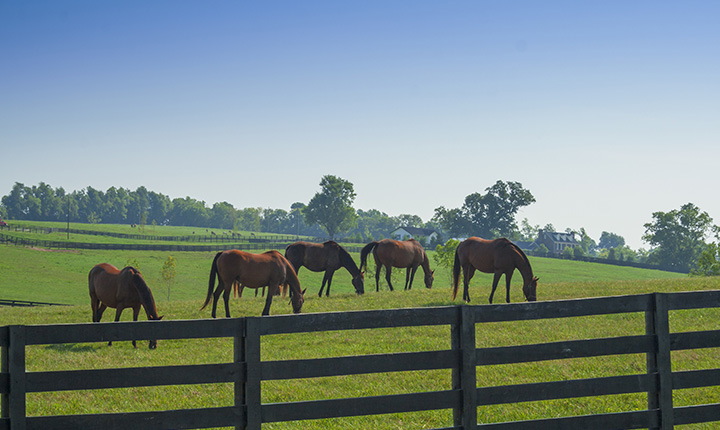2200006 - Equine Nutrition
Course Description

You know your horse needs a reliable nutritional program. His life and career depend on the building blocks that nutrition will provide, as a solid foundation for health and welfare This course leads you through the maze of essential equine nutrition and gives you the practical knowledge and skills you need to develop and maintain a healthy nutritional program for your horse, in collaboration with your veterinarian or equine nutritionist.
In this course, you will cover the basics of nutrition, including feeds and feeding. You will benefit from practical information on diet and nutrition and its relationship to the health and performance of your horse.We do not present information at this introductory level that will make you a nutritionist—we can only scratch the surface of some broad topics. There is an advanced nutrition course that will provide a path for continued studies beyond the fundamental level presented in this course.
This course is for you if you are responsible for the nutritional requirements of horses—including owners, trainers, coaches, barn managers, grooms, and sales and technical personnel working in the feed and tack industries—or just want to know more about how to feed a horse.
I have spent the past seven years taking so many of the Equine Studies courses and they have all assisted in my plans. For me, the most informative and utilized course I took was the Equine Nutrition course.
Learning Outcomes
Upon successful completion of this course, you will be able to:
- Assess and analyze horses and their environment with regards to nutrition, feeds and feeding practices;
- Assess safe ranges of essential nutrient intake;
- Develop strategies for adjustment of rations to optimize the health and welfare of the horse;
- Discuss equine feeding practices and their impact on the prevention of nutritional diseases;
- Identify locally important harmful plants and agents and discuss strategies to safely control them in the environment;
- Discuss and reflect upon how general nutrition and feeding practices apply to your community; and
- Effectively communicate your assessment of the horse and ration design to relevant professionals such as your veterinarian or nutritionist.
Course Topics
- Introduction to Equine Nutrition
- Horse Assessment
- The Digestive System
- Water, Energy and Macronutrients
- Micronutrients – Vitamins and Minerals
- Forages
- Harmful Plants and Agents
- Concentrate Feeds
- Supplements
- Ration Formulation
- The Performance Horse
- Seniors, Hard and Easy Keepers
Additional Requirements
- This course is intended for adult learners who are at least 18 years of age.
- There are no prerequisites for this course.
- You may take this as an individual course or choose to complete one of our equine certificates or the diploma.*
- You do not need access to a horse to participate and be successful in this course.
- You can expect to spend 6-10 hours per week to complete the course material, discussions and assignments.
*We recommend you complete Management of the Equine Environment first, or very early in your course of studies. This course is offered every semester.
Assessment
| Assessment Item | Weight |
|---|---|
|
Topic Discussions |
20% |
| Guest Speaker Discussions | 10% |
| Quizzes (4 x 5%) | 20% |
| Hay Assessment Report | 30% |
| Case Study | 20% |
| Total | 100% |
Please note that the course assessment is subject to change.
Sponsoring Partner
Applies Towards the Following Certificates
- Diploma in Equine Studies : Required Courses
- Equine Science Certificate : Required Courses
- Equine Welfare Certificate : Electives
Technical Requirements
You are responsible for ensuring that your computer system meets the necessary system requirements. Use the browser check tool to ensure your browser settings are compatible and up to date (results will be displayed in a new browser window).
*Course details are subject to change.

